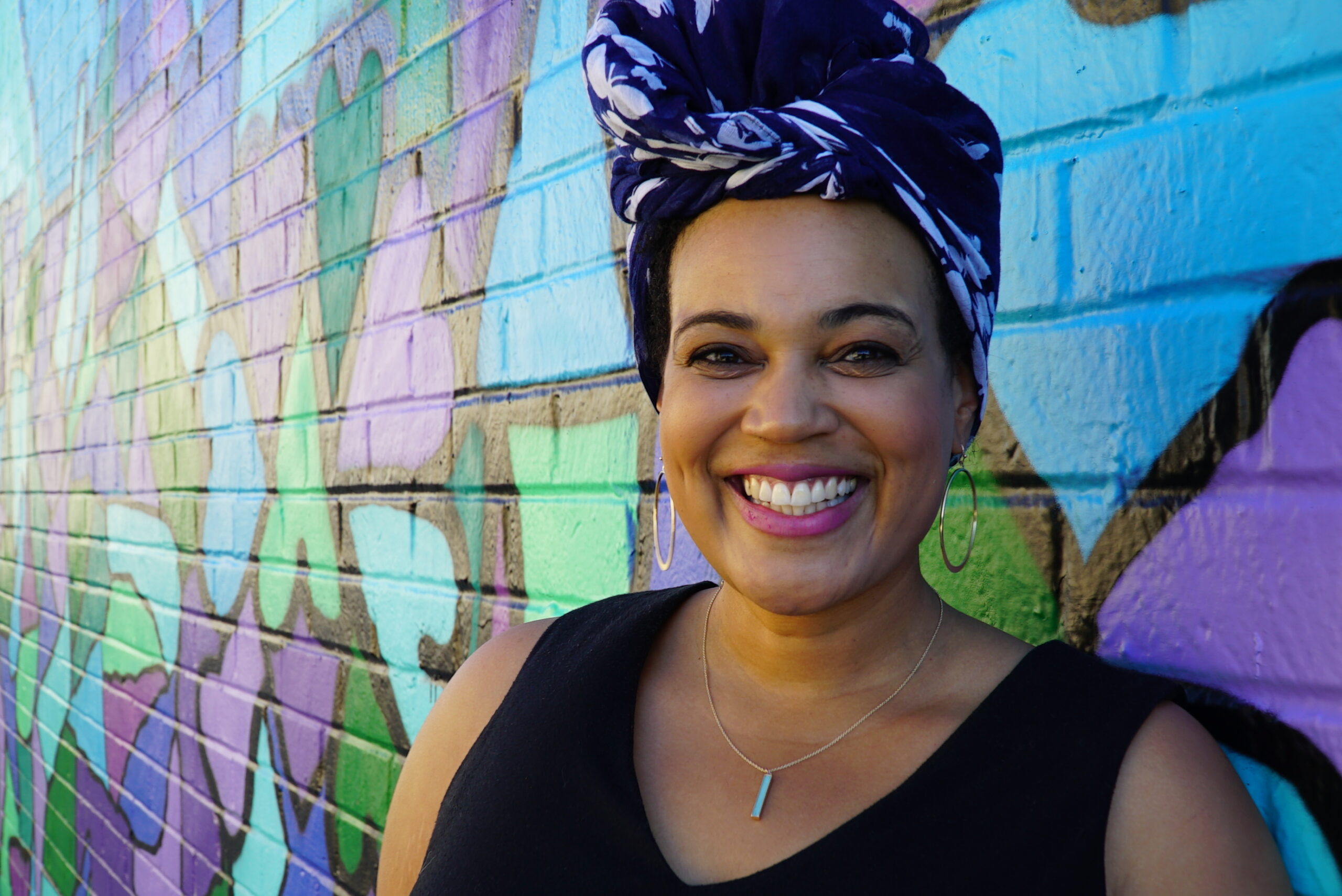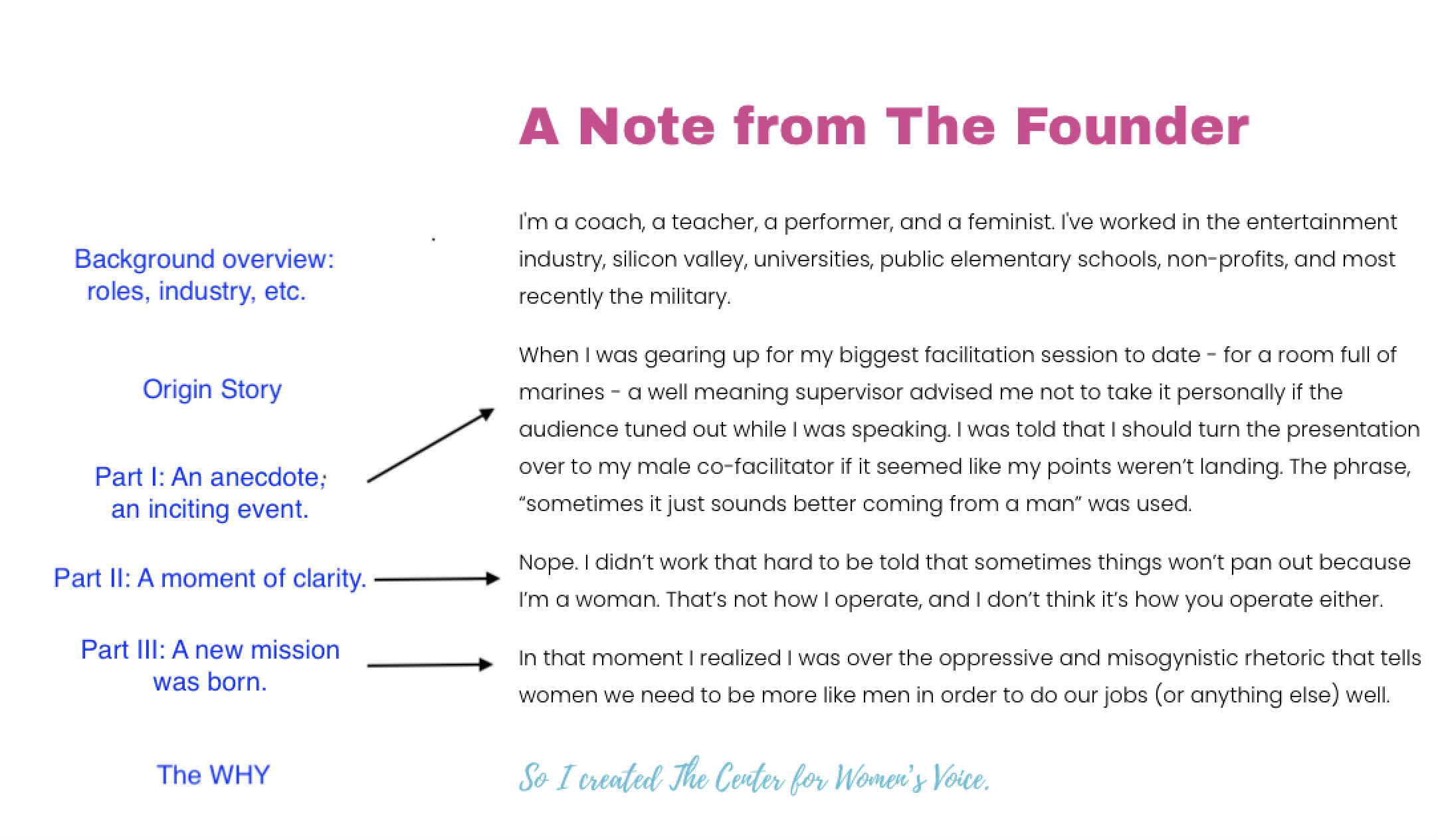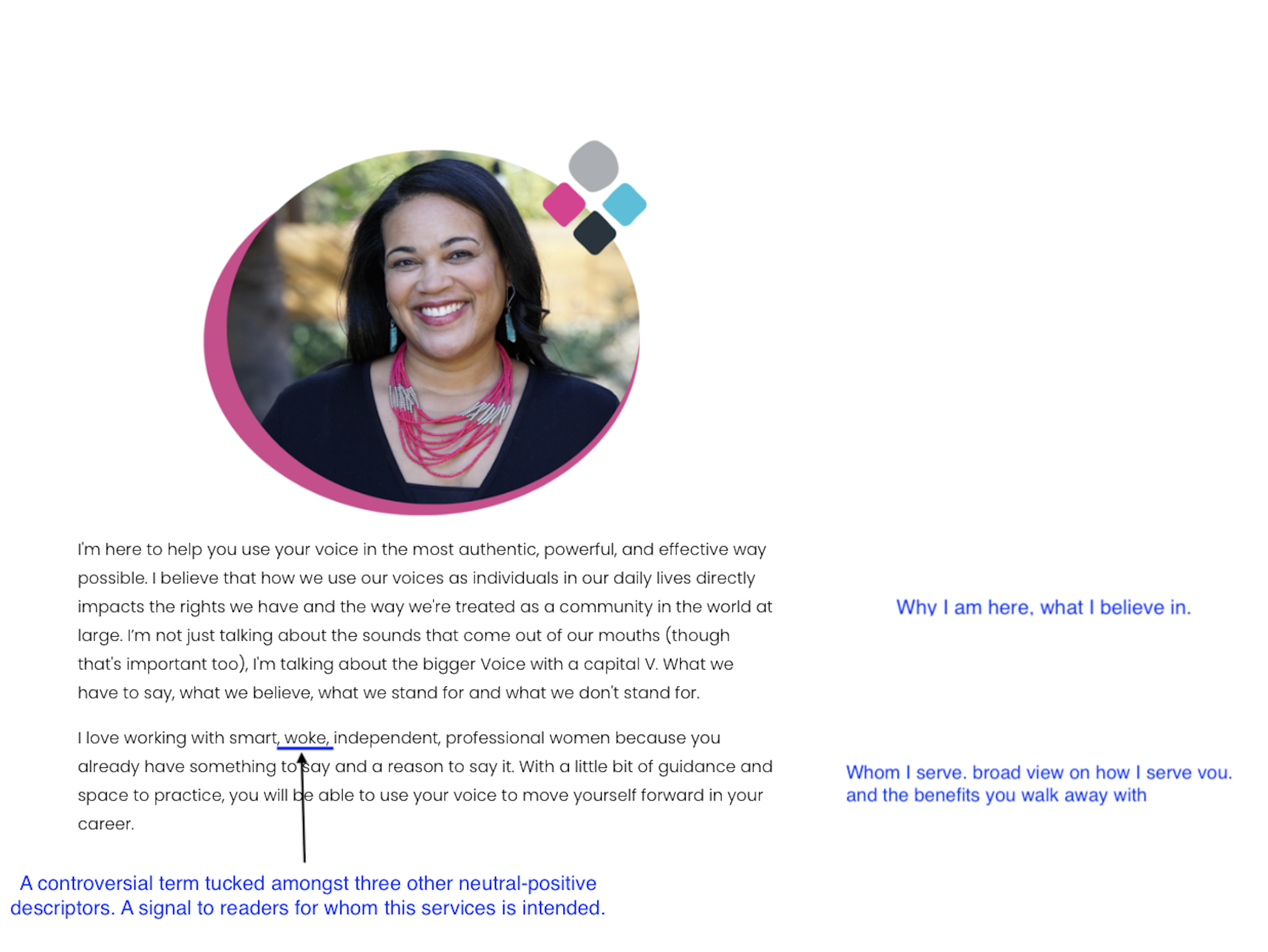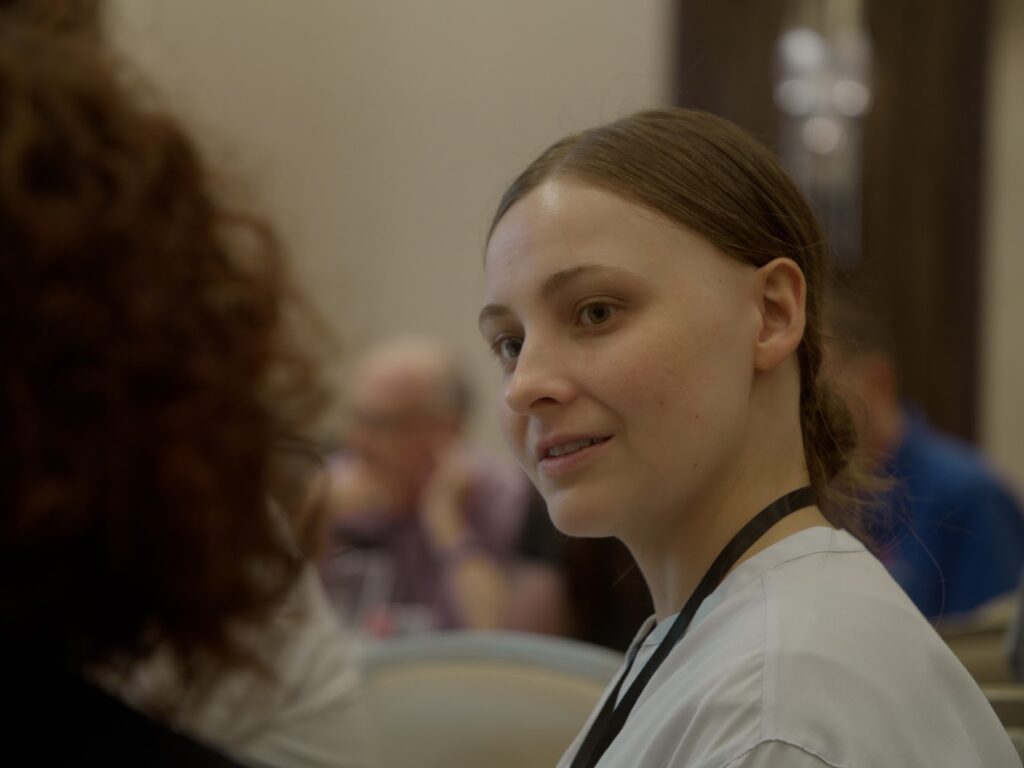August 11, 2022 / Esther Choy

I am always on the lookout for great examples of business stories. One genre of business stories is the origin story. Good origin stories tell the audience and potential client the WHY behind your business. A great origin story does so with an emotional hook. As Simon Sinek states in his famous TED Talk about marketing: “People don’t buy what you do. They buy why you do it.”
When I read the origin story for The Center for Women’s Voice, I noticed how powerfully — and briefly — Malika Amandi was able to explain her WHY while at the same time calling out her audience.
She starts her origin story with her credentials, giving her background in large strokes: “I’m a coach, a teacher, a performer, and a feminist. I’ve worked in the entertainment industry, silicon valley, universities, public elementary schools, non-profits, and most recently the military.”
Then she jumps into a powerful anecdote. In just three sentences she provides context and describes the inciting event using salient details:
“When I was gearing up for my biggest facilitation session to date – for a room full of marines – a well meaning supervisor advised me not to take it personally if the audience tuned out while I was speaking. I was told that I should turn the presentation over to my male co-facilitator if it seemed like my points weren’t landing. The phrase, ‘sometimes it just sounds better coming from a man’ was used.”
Pow. She provides a picture of conflict and waits for the reader to see how she responds. In less than 35 words, she describes her moment of clarity: “Nope. I didn’t work that hard to be told that sometimes things won’t pan out because I’m a woman. That’s not how I operate, and I don’t think it’s how you operate either.”
The final sentence provides an analysis of her moment of clarity while describing the mission of her business: “In that moment I realized I was over the oppressive and misogynistic rhetoric that tells women we need to be more like men in order to do our jobs (or anything else) well.”
Here’s my annotation of the story on her website:


I had the opportunity to speak with Malika Amandi and learn more about her storytelling background and ask what tips she has for business leaders who are crafting their own origin stories. Here’s a snippet of our conversation.
Leadership Story Lab (LSL): Your skill for storytelling shows clearly on your website. How did you learn storytelling?
Malika: Stories are such a fundamental part of the human experience. Once you start telling stories, it’s hard not to notice them everywhere. Storytelling was modeled to me by my parents. It’s a big part of our family dynamic and the way we spend time together. It’s a natural expression; a way of sharing experiences from the day.
My actor training also taught me to look at the building blocks of storytelling. Actors learn to look at a scene or monologue and figure out the purpose. We’re always asking “what do I need to communicate to the audience?” As a performer you need to figure out the story so you can make a choice about what to convey to the audience.
I’m also always looking for good stories when I consume content.
LSL: How does storytelling translate to the business context?
Malika: When it comes to selling or marketing, there are certain types of stories that just work. I’ve learned them from observing other business owners, and more directly from my own mentors. Narratives are constantly evolving, but there are enduring patterns. You can look at any sales page. Everyone is trying to get you to click the button. Someone might perceive that as evil or manipulative. But I don’t see it that way. It’s just life. When we are telling stories we are really just trying to communicate ideas and elicit a response.
There are certain patterns in business stories that engage a reader or audience member— stories that take the audience through a process. For example, I learned the “Course Corrector” story formula from a mentor, which starts with a commonly held assumption and then disproves it.
At the Center For Women’s Voice, we are often telling stories that follow this pattern. A commonly held assumption is that it’s important for women to be nice. I like to share stories that interrogate this belief and provide counterexamples of women being more than just pleasant and accommodating.
Stories provide a way of moving through information that is easy to consume. They take you on a journey. Whether it’s a movie script, a website, or a presentation, storytelling is everywhere.
LSL: What tips do you have for business leaders who are writing their own origin stories?
Malika: In my origin story all the events are true, yet a lot of other factors went into the founding The Center for Women’s Voice. For the purposes of the website, I stripped it down to create an easy hook and a through line. There were a lot of other nuances around that conversation. For example, my supervisor who told me to let my male co-facilitator speak more was actually a woman (many people envision a man). But that detail wasn’t relevant to the point I am making. If I include every single fact of the story as it happened in real time, it would muddle the message I’m trying to get across.
As the storyteller, you are taking the responsibility for what details you include and what you are communicating. When you are creating your origin story it’s easy to get caught up in the details, the timeline, every little aspect, and the point gets convoluted. As a starting place, it’s important to write down a version of the story that has all the details, but then just pick one thread and refine it.
Next, you need to share it with a lot of people and pay attention to what parts of the story they respond to. Workshop it in real life and get live feedback. What stands out to folks? What parts do they remember? How do they need you to connect the dots?
When I was workshopping my origin story I learned a lot of the people I work with in the entertainment industry were provoked by the military aspect of my narrative. There’s a lot of overlap between how women feel in the entertainment industry and in the military: It’s male driven, there’s a lot of protocol, you are supposed to fall in line and not question the people above you. Once I understood that response, I felt more freedom to lean into those themes.
Ask yourself what is the intention of the story? Why do you want to tell the story? What is the purpose? Answering these questions will inform the point of view you share.
LSL: Thank you, Malika, for sharing with Leadership Story Lab.
—
Workshop your origin story at one of our Story Labs. You will get the kind of helpful feedback that Malika talks about.
Related Articles
Better Every Story
"This is an amazing and insightful post! I hadn’t thought of that so you broadened my perspective. I always appreciate your insight!" - Dan B.
Join the thousands who receive Esther Choy’s insights, best practices and examples of great storytelling in our twice monthly newsletter.




